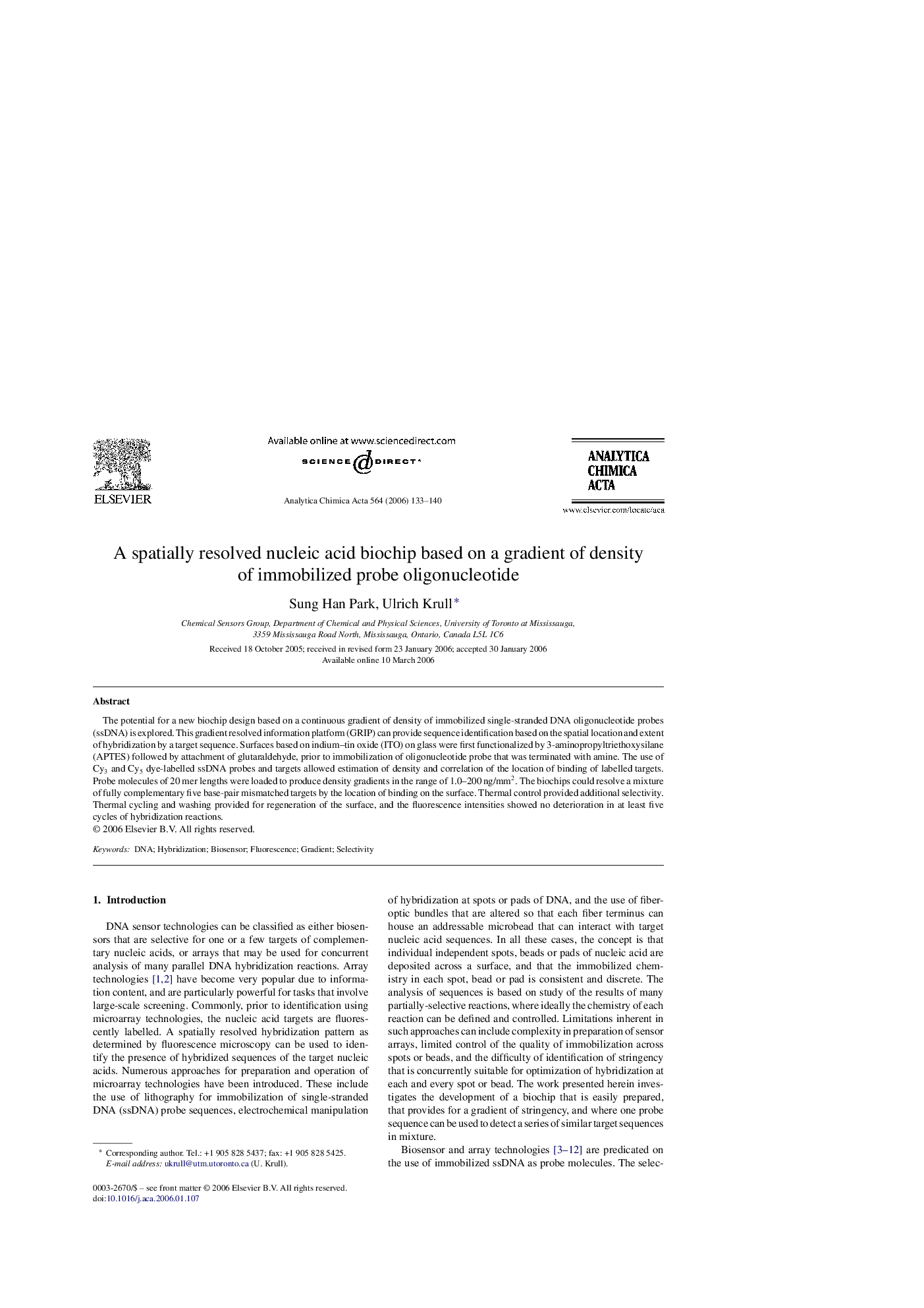| Article ID | Journal | Published Year | Pages | File Type |
|---|---|---|---|---|
| 1172216 | Analytica Chimica Acta | 2006 | 8 Pages |
The potential for a new biochip design based on a continuous gradient of density of immobilized single-stranded DNA oligonucleotide probes (ssDNA) is explored. This gradient resolved information platform (GRIP) can provide sequence identification based on the spatial location and extent of hybridization by a target sequence. Surfaces based on indium–tin oxide (ITO) on glass were first functionalized by 3-aminopropyltriethoxysilane (APTES) followed by attachment of glutaraldehyde, prior to immobilization of oligonucleotide probe that was terminated with amine. The use of Cy3 and Cy5 dye-labelled ssDNA probes and targets allowed estimation of density and correlation of the location of binding of labelled targets. Probe molecules of 20 mer lengths were loaded to produce density gradients in the range of 1.0–200 ng/mm2. The biochips could resolve a mixture of fully complementary five base-pair mismatched targets by the location of binding on the surface. Thermal control provided additional selectivity. Thermal cycling and washing provided for regeneration of the surface, and the fluorescence intensities showed no deterioration in at least five cycles of hybridization reactions.
